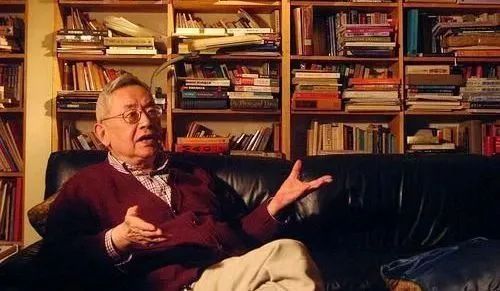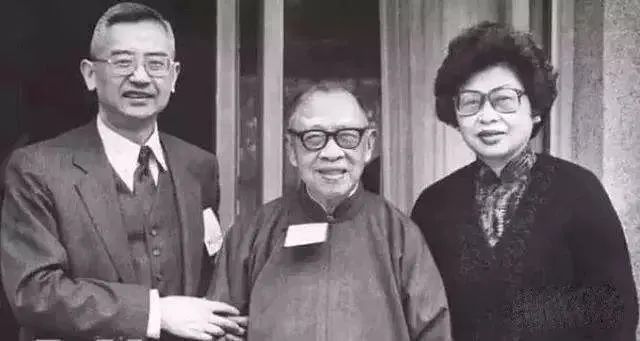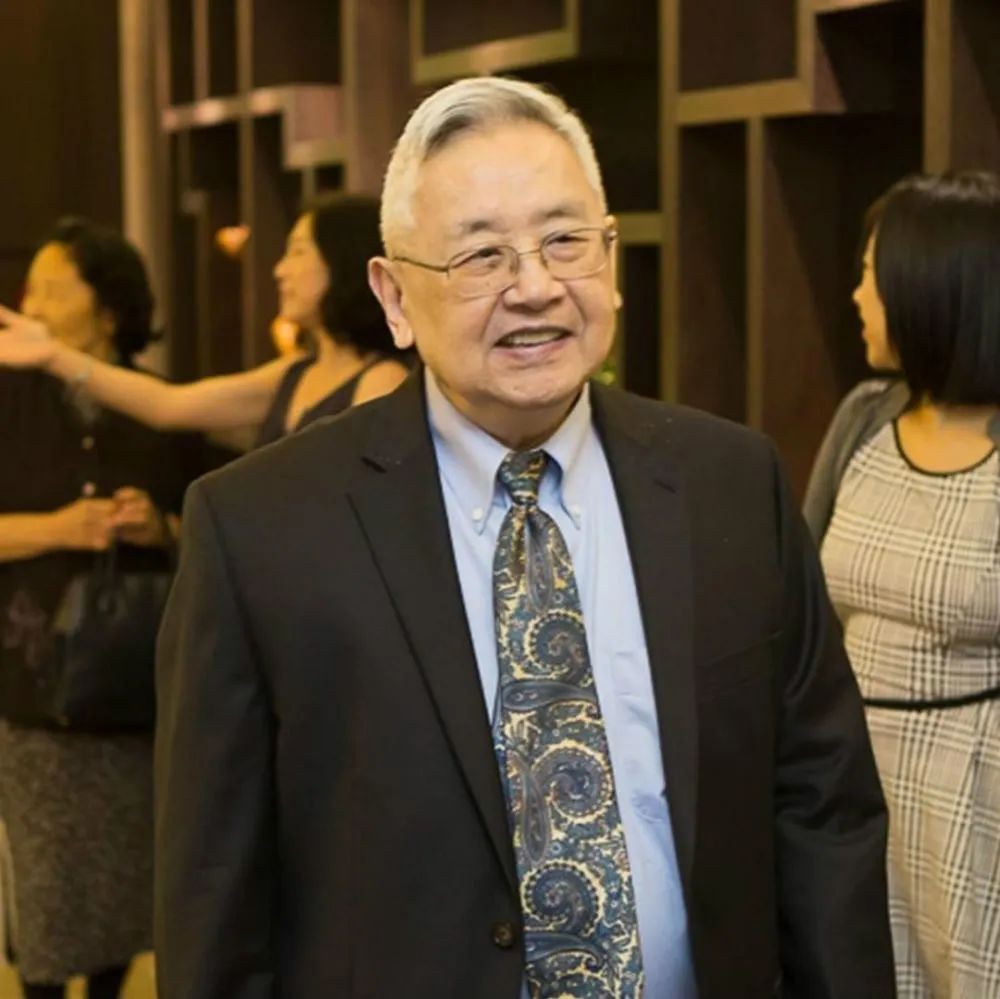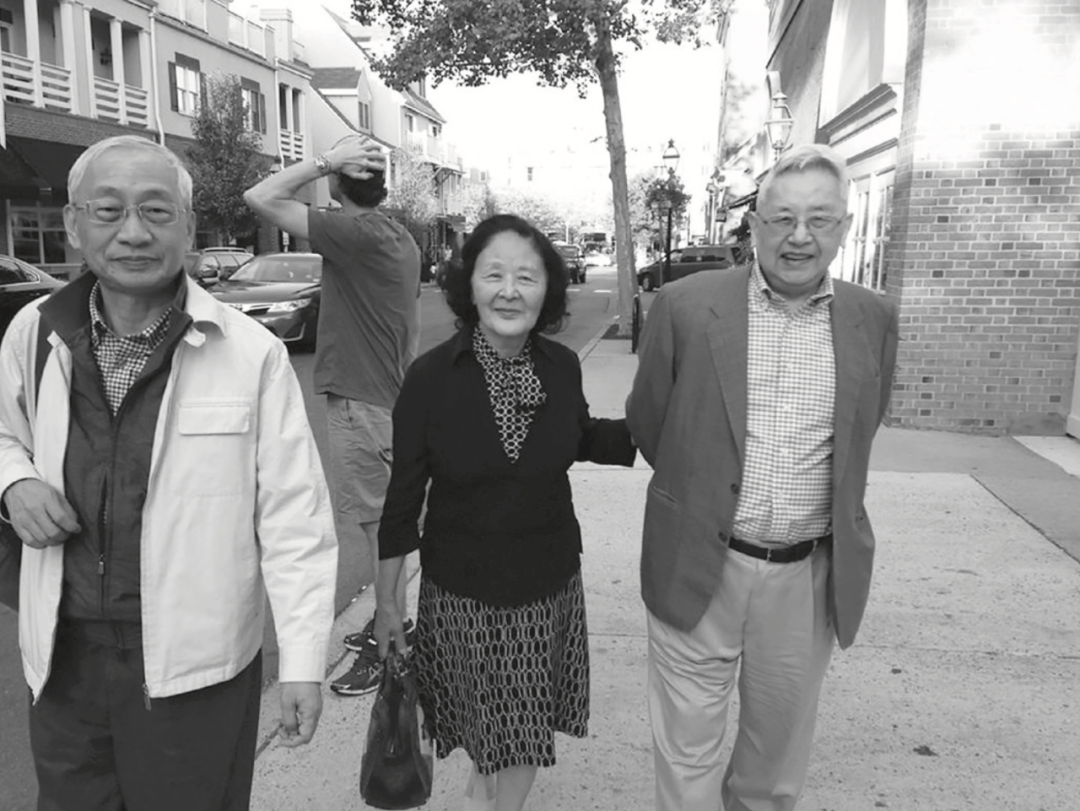I don't know where is my home: Yu Yingshi's Chinese feelings

1. The people of the city are not as old as they used to be
In 1978, Yu Yingshi, who had been away from the mainland for nearly 30 years, finally set foot on his homeland. When the plane landed in Beijing, he suddenly felt like he was returning from a crane, and he was in a trance in a myth. However, the country is still the same, and the hometown is no longer. In addition to the excitement, there is infinite emotion and melancholy.
Yu Yingshi represents the peak of contemporary Chinese historians' achievements. When he was young, he received a Ph.D. from Harvard University, and later he taught in several top American universities such as Harvard, Yale, and Princeton, making his mark in Western academia. After middle age, he wrote mostly in Chinese, which became popular for a while, and became an inescapable figure in the Chinese literary circle.
China is not only his research topic, but also his lifelong love. This time, he returned to his homeland as a Chinese-American.
Since he left the mainland in 1950, he has been fascinated by his dreams and looked at his hometown countless times, but when he really had the chance to go back, the trip back to his hometown was only once in his life. After Sino-US relations eased, as a member of the US official academic delegation, he returned to the mainland for academic exchanges, and his group traveled to Beijing, Luoyang, Xi'an, Chengdu, Hexi Corridor and other places. Qin Guan and Han Yue, which are usually only seen on paper, all appeared in front of him one by one, and his heart was indescribably shocked; in the Han and Tang Dynasties, the ancestors of the Han Road and Lan Lu, who created such a vast country, his majestic spirit made his heart agitate. , can't be calm for a long time.
The reality at the end of history made him extremely disappointed. In the past, robes, jackets and suits coexisted, but now there are only gray and blue commoners. The first-class scholars who talked to him were extremely cautious, as if they were worried about what they should say during their conversation. Keen through these details, he has already felt that the times are different. Day by day on the mainland, he learned that countless ancient buildings and sculptures had been destroyed in previous movements, and the nostalgia etiquette of the old society had almost disappeared.
The city is as old as the people are. This China is no longer the China he lived in in his early years. After that, Yu Yingshi continued to work in the field of Chinese history, but never returned. He wants to tell the traditional China in Chinese to people who are still using Chinese. The United Front Work Department of the Mainland, through his relatives and friends, persuaded him many times to go back and have a look. He resolutely said, I have no homesickness.

2. On the extension line of the big era
Yu Yingshi was born in 1930. The civil war was raging, and all kinds of thoughts rose and fell. Most of his academic works came out after the 1950s, which can be said to be on the extension line of the great era, and the impact is profound and far-reaching.
In 1937, after the outbreak of the Anti-Japanese War, in order to avoid the war, he was sent back to his hometown in the mountains of Qianshan, Anhui. China is a vast territory, and the situation varies greatly from place to place. There is no "cannibalism", oppression, and ignorance of the old society described by Lu Xun. Instead, the simple nostalgia, as well as the chirping of birds and cicadas and the streams of pine fir and cedars in nature, gave his youth a golden light, and also let He has an intimate understanding of China's thousands of years of traditional rural society.
Later, he studied under the master of historian Qian Mu and officially entered the hall of history. Qian Mu's warmth and respect for Chinese traditions coincided with his early experiences, exploring the value of traditions, discovering the unique context of Chinese history, and comparing its similarities and differences with Western history, which gradually became his lifelong study.
When he arrived at Harvard, he acquired a completely different approach to research and thought, that is, from a purely objective standpoint, he conducted a calm dissection of the research object, and answered the big questions about Chinese history in his mind by means of special research. . This is because of the rise of modern Western natural sciences and its influence on the humanities. Yu Yingshi was here and learned from Yang Liansheng, a famous sinologist. He did not let go of the methods he learned from Qian Mu, but used the dragon-slaying sword in his left hand and the Heavenly Sword in his right. In addition, he also extensively read Western thought and historical works, in order to compare with Chinese history.
Starting from the inside of the history of thought, he put forward the theory of "inward transcendence" and pointed out many "secret ways" leading to modern times in Chinese culture represented by Confucianism. "Good Will Hunting". In fact, he himself lived in an era of great change.
In modern China, the west wind prevailed over the east wind, and the crisis of national subjugation and genocide was oppressing people from time to time. As a result, many people think that traditions are mostly dross, that our culture has always been inferior to others, and that when they meet white people, they should immediately turn their heads short. Some scholars who are "out of time" hope to dig out shining gems in Chinese history and culture to prove the value of our nation, in order to cope with this dark and boundless era.
By 1949, after the founding of the People's Republic of China, the theme of the times had changed. "The Chinese people have stood up." The crisis of national subjugation and genocide no longer exists. The mainstream of mainland academic circles has become to interpret history with Marxism. Under the heavy pressure, many famous teachers and masters have turned to it. There are also some scholars who insist on their own opinions and go overseas to find another world. The crisis they have to deal with has changed from the subjugation of the country and the genocide to the opposition to xx. Whether Chinese culture can develop a democratic culture and a modern society has become a big issue that is often discussed outside the mainland.

The themes of these two eras profoundly influenced Yu Yingshi's scholarship. Although he lived a pure study life, he always paid attention to the land of China on the other side of the ocean. His living room is often a gathering place for political dissidents, exiled scholars, and famous figures of various disciplines to talk about scholarship and write articles, often until three or four in the morning.
On the one hand, he adheres to an objective perspective; on the other hand, he explores history with emotion and sympathetic understanding. He studies the history of ideas, but it is not limited to the history of ideas, politics, economy and even diplomacy. figure. His research on specific topics in Chinese history, such as the political culture in the Neo-Confucianism of the Song and Ming Dynasties, the confluence of taxis and merchants in the late Ming Dynasty, the pivotal breakthroughs of the pre-Qin scholars, etc., have become part of the wisdom of our culture.
He rarely mentioned the difficulties in the process of learning. His student Wang Fansen once said a detail. For a period of time, he often saw teachers frowning, gathering and eating, all of which were like this. Later, I learned that it was he who had been thinking about a historical issue during that time.
If the scholars who hold the banner of Chinese culture in modern times are divided into three generations, Gu Hongming, Chen Yinque, and Yu Yingshi can be their representatives. Gu Hongming was born in 1857. In his famous book "The Spirit of the Chinese", he mostly used the struggle of spirit to speak for China; Chen Yinke was born in 1890, and he already had more academic support. Calmly deal with the specific ideas of the integration of China and the West, as he said, "On the one hand, we should not forget the theory of the original nation, and on the other hand, we will absorb the imported theory." Yu Yingshi put forward the proposition of the current era on their extension line, whether Chinese culture can develop a democratic culture and a modern society.
3. I don't know where is my home
The feelings of the homeland are shared by scholars of all dynasties. In ancient times, it was often a kind of nostalgia for the homeland of the Central Plains and the imperial capital of the ancient times. In modern times, more overseas Chinese miss China.
Before and after the 1911 Revolution, a large number of overseas Chinese invested in various camps, or traveled thousands of miles to the mainland to shape the China they identified with. The founding of the People's Republic of China in 1949 was another watershed. A large number of people flowed like drops of water, forming waves, either going abroad or returning to the mainland. By the time of reform and opening up in 1978, some people left without hesitation and became new Chinese; some overseas Chinese came to their homeland to seek new development.

Yu Yingshi belonged to a group of people who left after 1949, and returned to China in 1978, which made him even more disheartened. The feelings of the literati's homeland are more difficult to restore than economic benefits.
"I don't know where is my home" is a line in a poem he wrote when he returned to China. His favorite allusion is a Buddhist story recorded by Zhou Lianggong of the late Ming and early Qing dynasties in "Yin Tree House Book Shadow":
In the past, there was a parrot flying and gathering in other mountains... There was a fire in the mountain, and the parrot saw it from a distance, soaked its feathers in the water, and flew and sprinkled it. The gods said: "Although you have a will, why do you think so?" He replied, "I can't bear to see the mountains after tasting the overseas Chinese!"
This Buddhist story, which has been sinicized, expresses many meanings in Chinese culture, such as "knowing it can't do it", "retaining the bird and loving the old forest, and the pond fish thinking of the old abyss", and it can also be said to be the Buddhist version of Jingwei's reclamation. A small bird with a sense of generosity in sad songs. "Having a taste of living abroad is a mountain, I can't bear to see you!" Yu Yingshi's quote was also engraved on the hearts of more people.
In Yu Yingshi's heart, he is also this parrot. The rise and fall are uncertain, his interest in politics is only a "distant interest", and what he really cares about is the cultural status quo of an ancient country with thousands of years of civilization. Thought history cannot help the country and the world, but it can give people a kind of spiritual power.
In the Tang Dynasty, Cui Hao said: "Where is the gate of the village at sunset, the misty rivers and mountains make people sad", which has become a famous sentence through the ages. In fact, his hometown is nearby, and the horse is just around the corner, but his mind is still wandering. Yu Yingshi can go back at any time. For more than 40 years after 1978, until he died in his sleep at the age of 91, he always lived in a foreign country and wrote about the Yangtze River in his home country to people.
German literary giant Thomas Mann once said: Where I am, there is Germany. Yu Yingshi also said something similar: Where am I, where is China.
Like my work? Don't forget to support and clap, let me know that you are with me on the road of creation. Keep this enthusiasm together!
